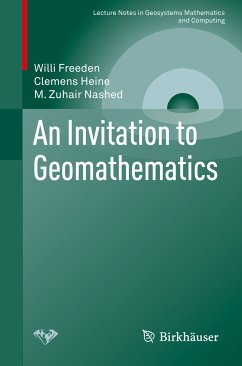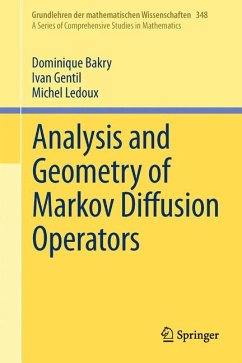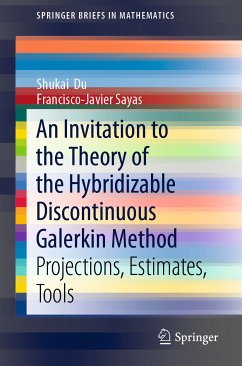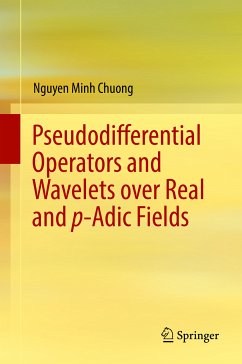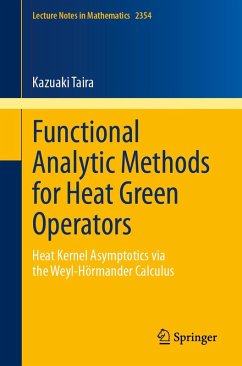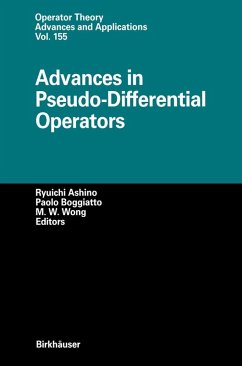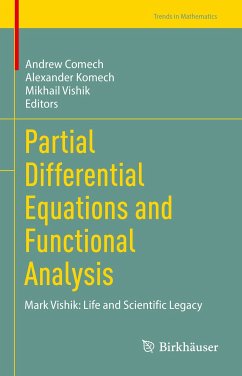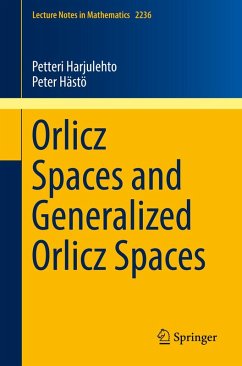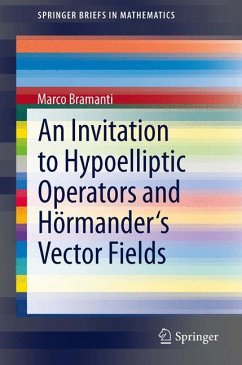
An Invitation to Hypoelliptic Operators and Hörmander's Vector Fields (eBook, PDF)
Versandkostenfrei!
Sofort per Download lieferbar
52,95 €
inkl. MwSt.
Weitere Ausgaben:

PAYBACK Punkte
26 °P sammeln!
¿Hörmander's operators are an important class of linear elliptic-parabolic degenerate partial differential operators with smooth coefficients, which have been intensively studied since the late 1960s and are still an active field of research. This text provides the reader with a general overview of the field, with its motivations and problems, some of its fundamental results, and some recent lines of development.
Dieser Download kann aus rechtlichen Gründen nur mit Rechnungsadresse in A, B, BG, CY, CZ, D, DK, EW, E, FIN, F, GR, HR, H, IRL, I, LT, L, LR, M, NL, PL, P, R, S, SLO, SK ausgeliefert werden.




